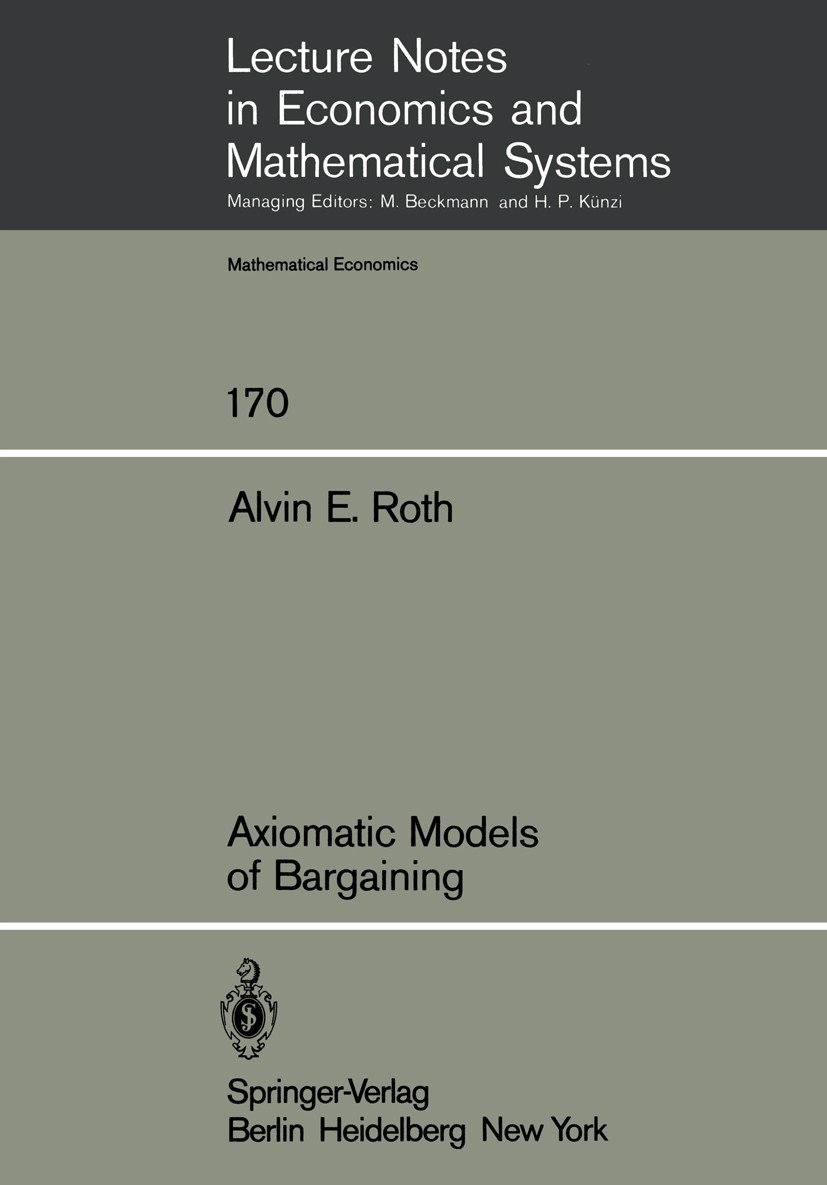| 期刊全稱 | Axiomatic Models of Bargaining | | 影響因子2023 | Alvin E. Roth | | 視頻video | http://file.papertrans.cn/168/167729/167729.mp4 | | 學(xué)科分類 | Lecture Notes in Economics and Mathematical Systems | | 圖書封面 |  | | 影響因子 | The problem to be considered here is the one faced by bargainers who must reach a consensus--i.e., a unanimous decision. Specifically, we will be consid- ering n-person games in which there is a set of feasible alternatives, any one of which can be the outcome of bargaining if it is agreed to by all the bargainers. In the event that no unanimous agreement is reached, some pre-specified disagree- ment outcome will be the result. Thus, in games of this type, each player has a veto over any alternative other than the disagreement outcome. There are several reasons for studying games of this type. First, many negotiating situations, particularly those involving only two bargainers (i.e., when n = 2), are conducted under essentially these rules. Also, bargaining games of this type often occur as components of more complex processes. In addi- tion, the simplicity of bargaining games makes them an excellent vehicle for studying the effect of any assumptions which are made in their analysis. The effect of many of the assumptions which are made in the analysis of more complex cooperative games can more easily be discerned in studying bargaining games. The various models of bargaining consid | | Pindex | Book 1979 |
The information of publication is updating

|
|
 |Archiver|手機版|小黑屋|
派博傳思國際
( 京公網(wǎng)安備110108008328)
GMT+8, 2025-10-26 22:59
|Archiver|手機版|小黑屋|
派博傳思國際
( 京公網(wǎng)安備110108008328)
GMT+8, 2025-10-26 22:59


